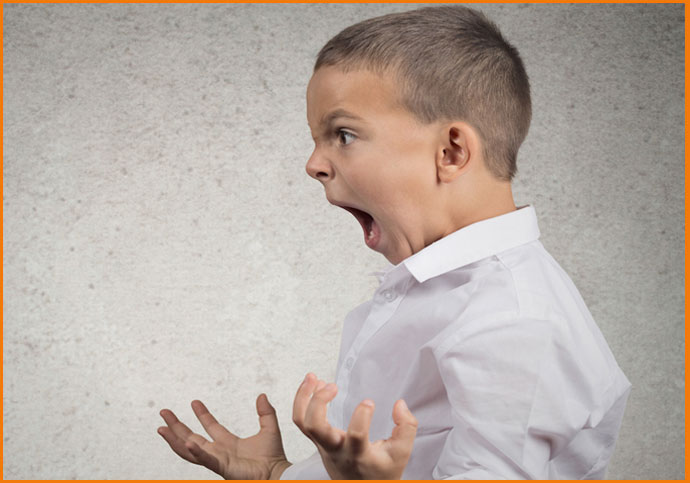
Aggressive child
My son Mit, 8 years old is a very aggressive child. He has perfected the art of keeping the whole family very tense as he can throw a tantrum any time. This behavior is confined more to the home and very less at school. We have tried various methods of pacifying him, threatening him, giving in to him, but this behavior remains. Please explain why he is so aggressive.
There could be various reasons for a child’s anger. The first is an imitation of the atmosphere in the house. If the family members or any one member is very aggressive, the child will learn imitation involuntarily. Even if other family members are loving and non-aggressive, the child will imbibe the aggressiveness simply because it can relieve the threat of aggression it perceives from that aggressor by being aggressive itself. You may find that the child’s aggression is a caricature of the aggression of some family member. By impersonating the aggressor, assuming his attributes or imitating the aggression, the child transforms himself from the person threatened into the person who makes the threat. From being a passive receiver of the aggression, this action enables the child to take active part in passing the unpleasant feelings on to somebody else and enjoy the pleasure of seeing the discomfort in somebody else. The second reason could also be if there is some aggression expected; the child would be becoming aggressive as a prophylactic measure. For e.g. if the child is anxious about being scolded about what he has done in school, he would become aggressive and complain vehemently to protect himself should he be reproved for his lack of consideration in school. The aggression which he assumes is turned against the actual person from whom he expects aggression and not against some substitute. The third reason is if the child is being constantly condemned for what he is doing, then he can turn into an aggressive child. His strictures on others corresponds to the blame he expects because of his activities. The criticism is internalized and the offense is externalized. This allows the child to be aggressive. The intolerance of mistakes of others precedes a strict attitude towards itself. The child has learned what is blameworthy but protects himself by means of aggression outside. Vehement indignation at someone else’s wrongdoing is the precursor of and substitute for guilty feelings on his own account. His vehemence increases automatically when the perception of his own guilt is imminent. At the moment Mit has imbibed the characteristics and opinions and made them his own, he is providing material for his own morality to develop. The criticism is not yet transformed to self-criticism.
What you can do.
Determine what is the cause of his aggression as shown from the three reasons above. The best job is for each family member to indulge in self-criticism and model that for Mit. If his conscience can be taught not to be arrested at the criticism of others but to procced for self-criticism, the aggression will get diluted. You must also be quick on this because if a sufficient amount of time passes, the child may learn to enjoy keeping others tense so much that it can actually become a pleasurable pastime which may be very difficult to get rid of. You need to remember that an aggressive approach like punishment will only serve to reinforce his perception of a cruel world in which the effective weapon is of aggression. The second thing is to be able to help him deal with his guilt for doing things in a wrong manner and to stop fearing external aggression. If he is taught that to do a thing in the right manner is more important than punishment for the wrong one, it will help him to look forward for solutions than accusations. Giving practical advice or allowing him to vent his aggression are only temporary reprives and not permanent ones. The third thing is to blunt his aggression with an overdose of positive emotions and patience. It is very difficult to maintain a continuous stream of anger in the face of love. So if all the family members can take up that responsibility for ensuring that aggressive approaches are turned only towards the self and not others and that love is turned outwards, it will provide a focus for Mit to change himself. The earlier the intervention, the better it will be.



